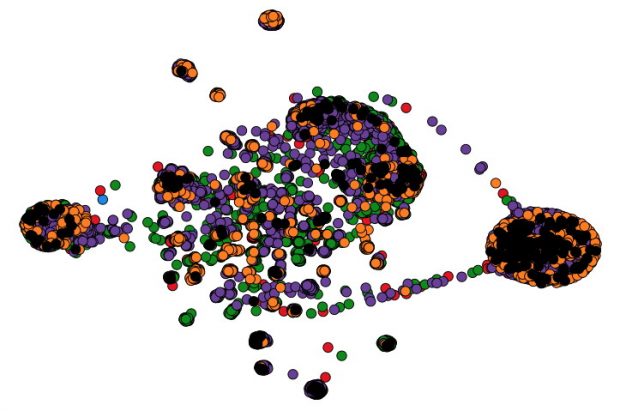 Maan, H., H. Mbareche, A.R. Raphenya, A. Banerjee, J.A. Nasir, R.A. Kozak, N. Knox, S. Mubareka, A.G. McArthur, & B. Wang.
Maan, H., H. Mbareche, A.R. Raphenya, A. Banerjee, J.A. Nasir, R.A. Kozak, N. Knox, S. Mubareka, A.G. McArthur, & B. Wang.
The Lancet Digital Health, in press.
The ongoing COVID-19 pandemic is the greatest health-care challenge of this generation. Early viral genome sequencing studies of small cohorts have indicated the possibility of distinct severe acute respiratory syndrome coronavirus 2 (SARS-CoV-2) genotypes.1 If these subtypes result in an altered virus tropism or pathogenesis in infected hosts, this could have immediate implications for vaccine design, drug development, and efforts to control the pandemic. Therefore, the genomic surveillance and characterisation of circulating viral strains is a high priority for research and development. To facilitate the epidemiological tracking of SARS-CoV-2, researchers worldwide have created various web-portals and tools, such as the Johns Hopkins University COVID-19 dashboard. An unprecedented effort to make COVID-19-related data accessible in near real-time has resulted in more than 25 000 publicly available genome sequences of SARS-CoV-2 on Global Initiative on Sharing All Influenza Data (GISAID). Although platforms to survey epidemiological data are prevalent, tools that summarise publicly available viral genome data are scarce and those that are available do not offer users the ability to analyse in-house sequencing data. To address this gap, we have developed an accessible application, the COVID-19 Genotyping Tool (CGT).
Full paper at The Lancet Digital Health.
Featured on CBC’s The National: Scientists develop an app that tracks how COVID-19 mutates person-to-person

